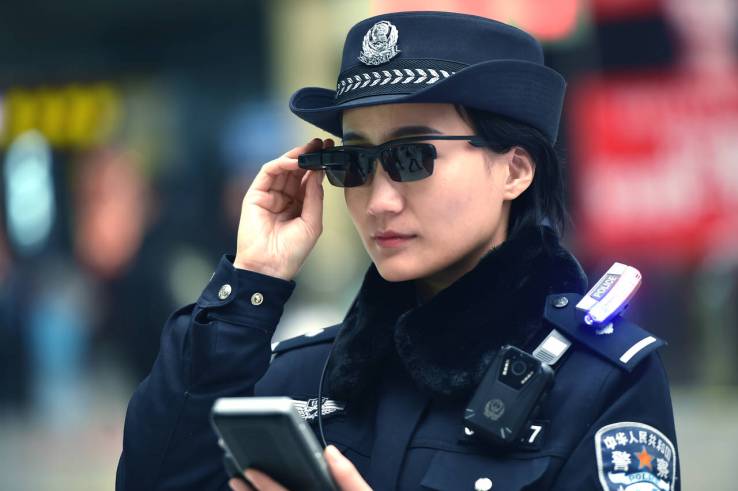
China already operates the world’s largest surveillance state with some 170 CCTV cameras at work, but its line of sight is about to get a new angle thanks to new smart eyewear that is being piloted by police officers.
The smart specs look a lot like Google Glass, but they are used for identifying potential suspects. The device connects to a feed which taps into China’s state database to root out potential criminals using facial recognition. Officers can identify suspects in a crowd by snapping their photo and matching it to the database. Beyond a name, officers are also supplied with the person’s address, according to the BBC.
Chinese state media reports that the technology has already facilitated the capture of seven individuals, while 35 others using fake IDs are said to have been found.
The glasses have been deployed in Zhengzhou, the capital of central province Henan, where it has been used to surveil those traveling by plane and train, according to the Wall Street Journal. With Chinese New Year, the world’s largest human migration, coming later this month, you’d imagine the glasses could be used to surveil the hundreds of millions of people who travel the country, and beyond, for the holiday period.
China’s has been criticized in many quarters for the way it uses its database, and facial recognition tech, in relation to ethnic minorities. A system deployed in Xinjiang — a province with a population of some 10 million ‘Uighur’ Muslims, is reportedly designed to notify authorities when “target” individuals go beyond their home or place of work, according to Bloomberg.
Uighurs have been the targets of roving VPN crackdowns and smartphone confiscation. Back in 2010, the government shut the region’s internet connect for a 10-month period following violence between Uighurs and Han Chinese.

Comments
Post a Comment